China is a beautiful country with many hidden treasures worth exploring. If you plan to travel to this country in the wintertime, one question you may have is does it snow in China?
It does snow in China; however, the amount it snows highly depends on what region of the country you’re in. While Northern China receives more snow, areas like Beijing receive only a small amount. While heavy snow generally isn’t a problem in the country, a layer of sparkling snow adds more beauty to the scenery.
Are you interested to know if it snows in China? Today, we will break down how much it snows in China. We’ll discuss the climate during the winter months and which areas get the most snow. Keep reading to learn more.
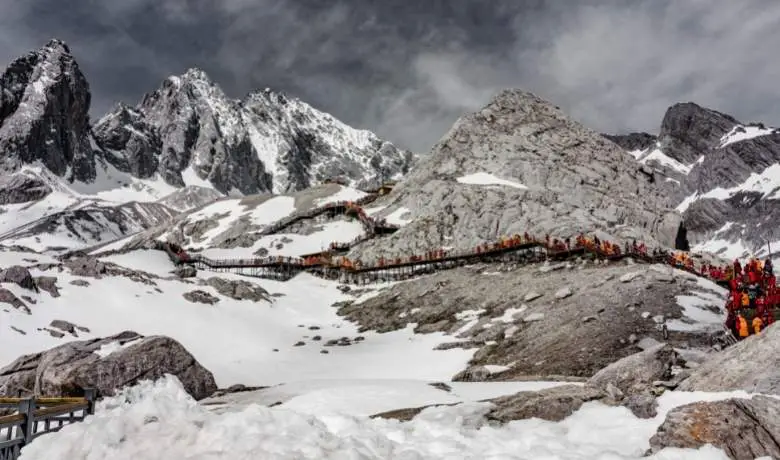
Does It Snow In China?
China receives snow, but mainly in the northern regions. To discuss the climate in China, one must have a good understanding of the size of the country. China is roughly 9,596,960 square kilometers in size. Since it’s such a large country, it’s highly unlikely that regions in the north will be experiencing the exact same weather conditions as regions in the south.
Cities in China’s northern region may get around 3 to 4 inches of snow in the winter, while cities in the south may get less than 2 inches.
One thing to know about China’s northern and southern regions climate is that winters are very dry. Even though some areas will get quite cold and windy, there won’t be a lot of snow. This is because precipitation is needed to make snow.
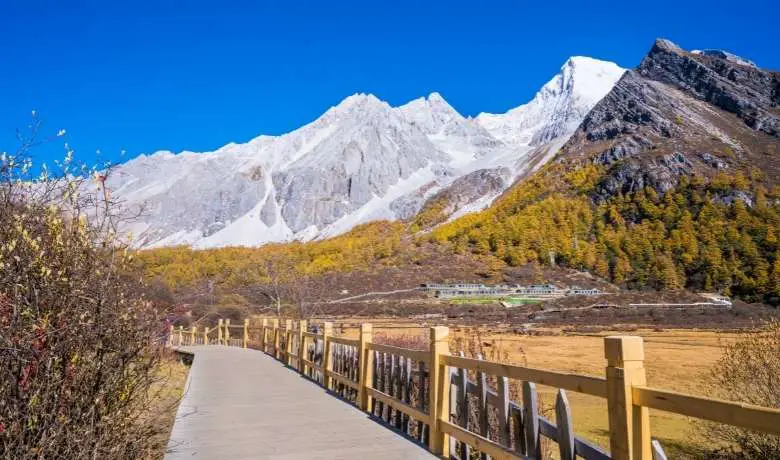
What Is Winter Like In Northern China?
Northern China is very dry in the wintertime. On top of that, there are very brisk temperatures. The winter season will typically start to come in around late November to early December. This is when the temperature will start to drop, the atmosphere will dry up, and the wind gets stronger.
January is the coldest month of the year when it’s normal for the temperature to drop below freezing. In towns like Harbin, it could get as cold as -36 F/ -38 C. Yet, in Beijing, the climate isn’t as impacted by winter conditions and the temperature may only drop to 25 F/ -4 C.
The winter season in Northern China is quite long. Residents can expect freezing temperatures to continue through February and not start to warm up until the end of March. Some years, when there is a heavy winter, cities far north (like Harbin) may see the first snowfall as early as October and could get a late snowfall in April.
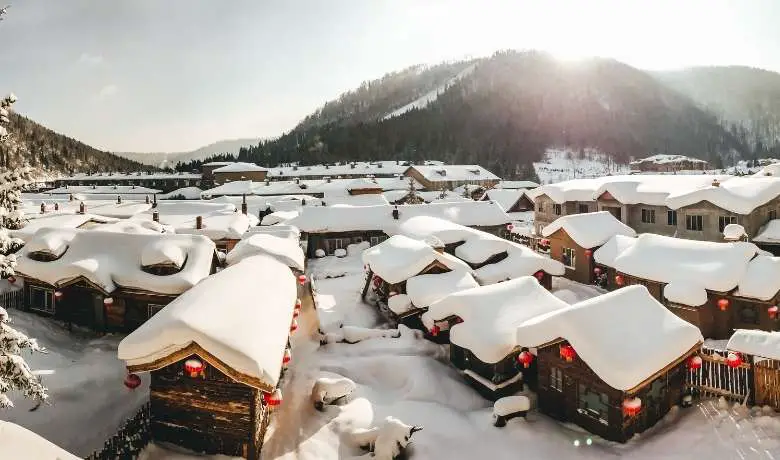
Harbin Is China’s “Ice City”
If you enjoy winter activities, you may want to visit Harbin. This is the winter wonderland of China. The winter season lasts for approximately 6 months each year. Harbin is also one of the coldest areas in China, so you will need a warm jacket, mittens, and boots if you visit in winter.
Zhong Guo Xue Xiang Is The Snow Town In China
As you get to know more about each region of China, you’ll come to realize that China only gets a little bit of snow. However, with almost everything in life, there is always at least one exception to the ordinary. In China’s case, it’s the town of Zhong Guo Xue Xiang. This village isn’t far from Harbin and it’s the #1 place to see snow in all of China.
Why is Zhong Guo Xue Xiang the top place for snow? Zhong Guo Xue Xiang is a very windy village, and it’s common for snow from other towns to blow into this area. Some years, Zhong Guo Xue Xiang can get up to 78 inches of snow.
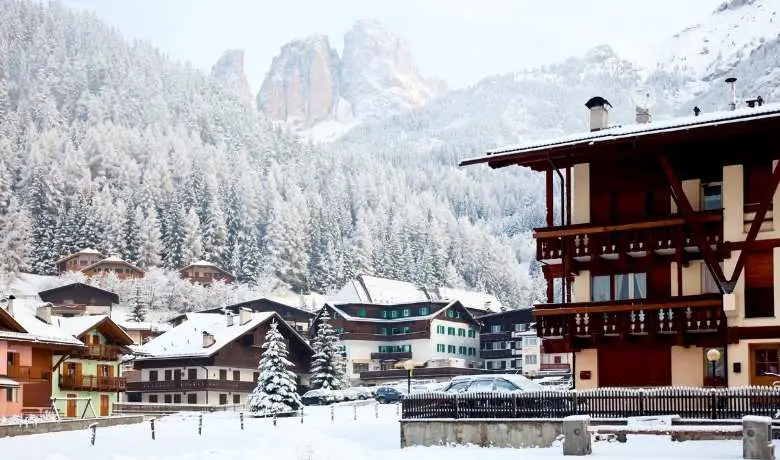
Beijing Has Fake Snow For The Olympics
Beijing is in China’s northern region but has a much different climate than other cities in the north. While Beijing does see its fair share of cold weather, it’s not nearly as drastic as other parts of the northern side of China. Many days throughout winter are just above freezing temperature.
Snowfall in Beijing is very light, and rarely does it ever settle on the ground. When people that are familiar with this city and its weather conditions found out that the 2022 Winter Olympics were being held in Beijing, there was room for confusion because of the climate. Most winters, Beijing hardly gets a half-inch of snow.
In order to cover the mountains and ground with snow for winter sports, snow machines were used. There was a lot of surfaces to cover, so well over 350 snow machines were needed to get the job done.
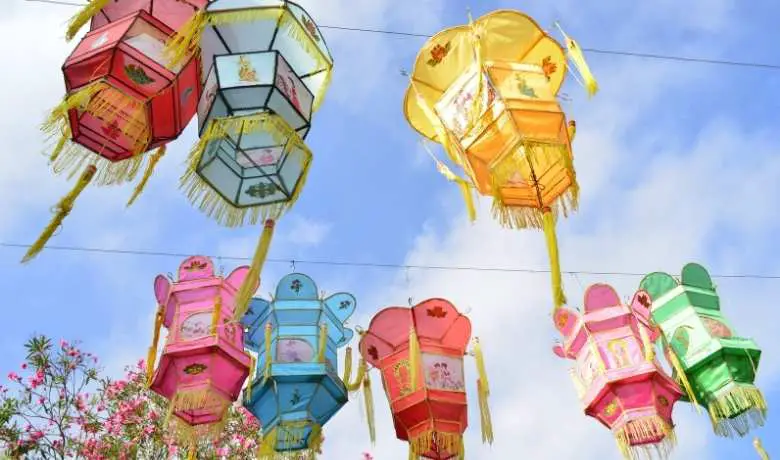
Inner Mongolia Has Drastic Temperature Changes
If you travel to Inner Mongolia, you should be prepared to face some diverse weather conditions. Inner Mongolia gets hit with snow, and it’s common to run into blizzard conditions. Like most of northern China, winters are long and brisk. The summer season is quite short, lasting just June, July, and August.
It doesn’t matter if you travel to Inner Mongolia at the beginning of September or in the middle of January, there is one thing about this region you need to be prepared for. This city has drastic temperature changes between day and night. If you’re planning on enjoying time spent outside, make sure you have clothing to keep you comfortable for temperature changes.
Shenyang Is Influenced By Monsoon Season
Regions that are influenced by the monsoon season have winters that are cold and dry and summers that are hot and humid. January can be a very brisk month, with an average temperature of 12 F/ -11 C.

What Is Winter Like In Southern China?
Winters in Southern China are a lot milder. While it may occasionally drop below freezing in the north section of Southern China, the temperature tends to stay around 66 F/ 19 C further south. Like Northern China, the atmosphere is very dry during winter. Many people book outdoor activities during the winter because there is a very low chance of rain ruining the occasion.
One thing that sets Northern and Southern China apart is the length of their seasons. In Northern China, it’s common to have a long cold winter, with a short summer. On the other hand, in Southern China, there is a long humid summer with very short mild winters.
Guangzhou Is Beautiful All Year
Guangzhou has beautiful weather all year round. Many people prefer to travel to this city in the autumn months because the summers are humid. However, winter can also be a great month to visit because there is little frost and snow is rare.
Chengdu Stays Humid
In the city of Chengdu, the temperature doesn’t fluctuate too much. It stays relatively cool and humid the whole year. Winters remain mild, with the temperature rarely dropping below 48 F/ 9 C.
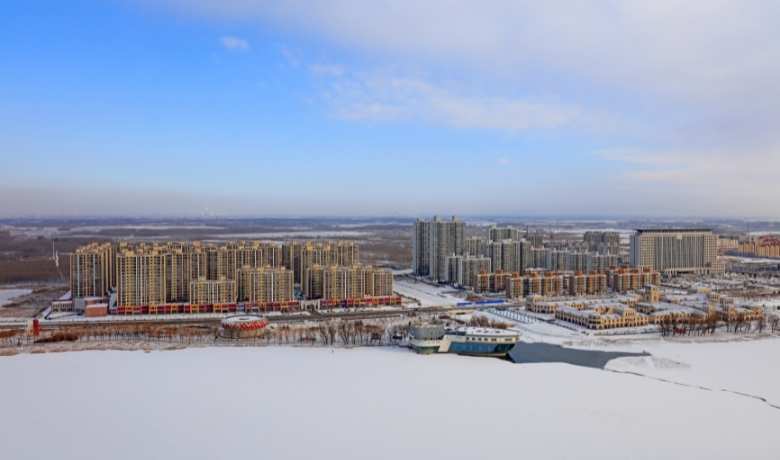
Guilin Is A Mild City
While winters can become chilly in Guilin, it’s unheard of to get snowed in. It rarely hits the freezing point in this city. In fact, there are more rainy days in winter than there ever is snow.
Kunming Has Consistent Weather
One thing about the city of Kunming is that the temperature stays constant. The average annual temperature is 59 F/ 15 C. In the peak of winter, the temperature may be in the 40s, while in the midst of summer it could get into the 60s. A lot of people enjoy the balance of weather in this city, as it’s not too hot or too cold.
Winter Activities In China
If you’re planning to travel to China in the winter, you may be wondering what activities will keep you busy. Let’s take a look at some of the most exciting things to do in China during winter:
- Explore local parks, mountains, and trails
- Visit the Great Wall of China
- Warm up with an authentic Chongqing hot pot
- Ice skating
- Snow biking
- View the ice lanterns
Final Thoughts
Does it snow in China? It does snow in China, but it doesn’t get much snow. Northern China experiences more snow than Southern China. While some areas of Northern China will receive 3 or 4 inches of snow, sections of Southern China are likely to not get any.
The reason why it rarely snows in Southern China is that the temperature is too high. It rarely dips below freezing in the southern regions. On the other hand, the Northern regions of China do get very cold in the winter. While it snows there, it only snows a small amount. The reason why is that winters are very dry and there isn’t enough precipitation to create snow.
While the 2022 Winter Olympics were held in Beijing, the city didn’t have enough snow naturally for the events. In order to get the right winter conditions, they used over 350 snow machines. Beijing doesn’t get enough snow for skiing, so people often travel further north to visit ski resorts in China.